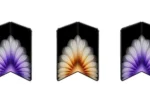Microsoft Edge strategy is at the forefront of the tech giant’s ongoing efforts to retain users within its browsing ecosystem. Recently, users of the Edge browser have encountered a distinctive pop-up when searching for the “Chrome Web Store” on Bing. This strategic move urges users to “Enjoy your favorite extensions without switching browsers,” signaling Microsoft’s intent to steer users away from Chrome. By promoting Edge extensions and emphasizing privacy and productivity, Microsoft aims to position Edge as a compelling alternative in the face of fierce competition from Chrome. As Microsoft continues to leverage its strengths, it demonstrates a keen understanding of user behavior and the importance of maintaining a loyal customer base.
In the battle for browser supremacy, Microsoft’s approach to its web browser is increasingly evident. The recent implementation of a pop-up banner on Bing specifically targets users searching for the “Chrome Web Store,” underscoring the company’s desire to keep them engaged with Edge. This banner not only highlights the advantages of Edge extensions but also attempts to showcase the browser’s superior privacy and productivity features. Such tactics reflect a broader trend where tech companies strive to cultivate user loyalty amidst the competitive landscape of browsers like Chrome. By focusing on the benefits of using Edge, Microsoft is clearly positioning itself as a viable contender in the ongoing browser wars.
Understanding Microsoft Edge’s New Strategy
Microsoft’s latest strategy to retain users within the Edge ecosystem revolves around a targeted pop-up that appears when users search for ‘Chrome Web Store’ on Bing. This tactic is not merely a coincidence; it reflects Microsoft’s intent to create an environment where users feel compelled to utilize Edge and its extensions rather than switching to Chrome. By promoting the Edge Add-ons Store, Microsoft aims to showcase the unique features and privacy benefits that Edge provides, enhancing user retention and loyalty.
The appearance of this pop-up is a clear signal that Microsoft is aware of the fierce competition it faces from Google Chrome. While Chrome has dominated the market, Microsoft is leveraging its own search engine, Bing, to influence user decisions. The message is straightforward: users can enjoy their favorite browser extensions without having to migrate to another platform. This strategy highlights the importance of integrating browser functionality with search capabilities to keep users engaged.
The Role of Edge Extensions in User Retention
Edge extensions play a crucial role in retaining users within the Microsoft ecosystem. By encouraging users to explore the Edge Add-ons Store, Microsoft not only showcases the diversity of available extensions but also emphasizes the advantages of remaining loyal to Edge. Users are often hesitant to switch browsers due to concerns about losing access to preferred tools and functionalities; thus, by prominently promoting Edge extensions, Microsoft mitigates this fear.
Moreover, the Edge browser’s extensions are designed to enhance productivity, privacy, and overall user experience. As Microsoft positions Edge as a superior alternative to Chrome, it is essential to communicate these benefits effectively. The pop-up that appears on Bing serves as a constant reminder of what users can gain by sticking with Edge. This method reflects a broader trend in digital marketing where companies strive to create a seamless experience that keeps users engaged and satisfied within their service ecosystem.
Implications of Bing Pop-Ups for Search Behavior
The introduction of Bing pop-ups that discourage users from switching to Chrome has significant implications for search behavior. When users encounter an advertisement urging them to stay within the Edge browser, it can influence their decision-making processes. This tactic not only redirects searches towards Edge-related content but also reinforces the notion that using Bing with Edge is more advantageous than switching to a competing browser.
This strategy could lead to a shift in user habits, where individuals may start to associate certain search queries with the benefits of Edge. Furthermore, as users become accustomed to seeing these prompts, they may begin to explore the Edge Add-ons Store out of curiosity or necessity, thereby increasing engagement with Microsoft’s products. Such tactics highlight how integrated marketing strategies can effectively shape consumer behavior in the competitive landscape of web browsers.
Analyzing Microsoft Edge and Chrome Competition
The competition between Microsoft Edge and Google Chrome is intensifying, with Microsoft adopting more aggressive tactics to retain its user base. This rivalry has resulted in various strategies, including the recent Bing pop-up that discourages users from exploring the Chrome Web Store. By focusing on promoting Edge’s unique features and capabilities, Microsoft aims to position its browser as a compelling alternative to Chrome, which has long dominated the market.
As both companies continue to innovate and enhance their offerings, the battle for user loyalty becomes more pronounced. Microsoft’s approach is a clear indication of its commitment to not only compete with Chrome but also to capitalize on its strengths, such as privacy and productivity features. This ongoing rivalry will likely result in continuous improvements in both browsers, ultimately benefiting users who are seeking the best browsing experience.
Microsoft Edge Extensions: A Competitive Advantage
One of the defining features of Microsoft Edge that differentiates it from Chrome is its robust selection of extensions. Microsoft has invested significantly in the Edge Add-ons Store, making it a competitive advantage in the browser marketplace. By offering a plethora of tools and functionalities specifically designed for Edge, Microsoft encourages users to remain loyal to their platform, as highlighted in the Bing pop-up strategy.
The promotion of Edge extensions is not just about increasing numbers; it’s about creating an ecosystem where users can find everything they need without switching to another browser. This strategy positions Edge as a versatile platform that can cater to the diverse needs of its users, ultimately fostering a sense of community and loyalty among Edge users. As the market evolves, the availability and quality of extensions will play a crucial role in determining user preference between Edge and Chrome.
User Experience: The Key to Edge’s Success
User experience is paramount in determining the success of any web browser, and Microsoft understands this well. By focusing on enhancing the Edge browser’s usability and integrating features that streamline the browsing experience, Microsoft is making a concerted effort to appeal to users who might otherwise consider switching to Chrome. The recent Bing pop-up serves as a reminder of the advantages users can enjoy by sticking with Edge.
Through continuous improvements and user feedback, Microsoft is dedicated to creating an environment that not only meets user expectations but exceeds them. This customer-centric approach is essential for maintaining a competitive edge in a market dominated by Chrome. As Microsoft continues to innovate and refine the Edge browser, the emphasis on user experience will play a pivotal role in attracting new users and retaining existing ones.
The Impact of Microsoft’s Ecosystem on User Behavior
Microsoft’s ecosystem encompasses a wide range of products and services, which significantly influences user behavior. By creating a seamless experience across its platforms, Microsoft encourages users to remain engaged within its ecosystem, including the Edge browser. The recent pop-up on Bing reinforces this strategy by promoting the Edge Add-ons Store as a go-to solution for users seeking browser extensions.
This integrated approach fosters brand loyalty, as users who utilize multiple Microsoft products are more likely to continue using Edge to maintain continuity in their experience. As a result, the interplay between Bing and Edge becomes a strategic advantage for Microsoft, ensuring that users who may have considered switching to Chrome are reminded of the benefits of staying within the Microsoft ecosystem.
Privacy Features: A Selling Point for Edge
Privacy is a growing concern among internet users, and Microsoft is capitalizing on this trend to promote Edge as a safer alternative to Chrome. The pop-up that appears when searching for the Chrome Web Store highlights Edge’s commitment to user privacy, claiming it offers better protection against tracking and data collection. This messaging not only addresses user concerns but also positions Edge as a more trustworthy option.
By emphasizing privacy features, Microsoft aims to attract users who prioritize data security in their browsing experience. This strategy is particularly effective in an age where many users are becoming increasingly aware of their online footprint. As Microsoft continues to enhance Edge’s privacy settings and features, it is likely to attract a demographic that values security, further strengthening its position against Chrome.
Future Prospects for Microsoft Edge in the Browser Wars
Looking ahead, the future of Microsoft Edge in the browser wars appears promising, especially with the ongoing strategies that aim to retain users. The aggressive marketing tactics, such as the Bing pop-up discouraging Chrome downloads, indicate a clear direction for Microsoft as it seeks to carve out a significant share of the market. As more users become aware of the benefits of Edge, Microsoft may see a steady increase in its user base.
Moreover, as technology evolves, so too will the features and capabilities of Edge. By continually innovating and responding to user feedback, Microsoft can ensure that Edge remains competitive in an ever-changing landscape. The prospects for Edge are not just about competing with Chrome; they also involve establishing a distinct identity that resonates with users and meets their needs in a comprehensive manner.
Frequently Asked Questions
What is the purpose of the Bing pop-up in the Edge browser regarding the Chrome Web Store?
The Bing pop-up in the Edge browser serves to discourage users from switching to Chrome by promoting the Edge Add-ons Store. When users search for ‘Chrome Web Store’ on Bing while using Edge, the pop-up encourages them to enjoy their favorite extensions without leaving the Edge browser, highlighting Edge’s benefits such as privacy and productivity.
How does Microsoft Edge’s strategy compare to its Chrome competition?
Microsoft Edge’s strategy to retain users is marked by aggressive tactics like the Bing pop-up that appears when searching for the ‘Chrome Web Store.’ This approach differs from Chrome’s competition strategies, as Microsoft actively nudges users to stay within the Edge ecosystem rather than downloading Chrome, emphasizing Edge’s features and advantages.
Why does Microsoft use pop-ups when searching for Chrome-related terms in the Edge browser?
Microsoft utilizes pop-ups when searching for Chrome-related terms in the Edge browser to redirect users towards its own Edge extensions and to reinforce the benefits of using Edge over Chrome. This strategy aims to keep users engaged with Microsoft products while discouraging the use of competitor offerings.
Are there any benefits to using Edge extensions over those available in the Chrome Web Store?
Using Edge extensions offers several benefits, including enhanced privacy and integration with Microsoft’s ecosystem. The Edge Add-ons Store provides users with curated extensions designed specifically for the Edge browser, which Microsoft promotes through strategies like the Bing pop-up when users search for the Chrome Web Store.
Is the Bing pop-up feature exclusive to Edge users?
Yes, the Bing pop-up feature is exclusive to users of the Edge browser. It only appears when searching for Chrome-related terms on Bing while using Edge, reinforcing Microsoft’s strategy to keep users within its ecosystem and promote the Edge browser over Chrome.
What are the implications of Microsoft’s strategy for users of the Edge browser?
The implications of Microsoft’s strategy for Edge browser users include a more seamless experience with Edge extensions and a constant reminder of the benefits of staying within the Microsoft ecosystem. However, this approach may limit users’ choices by discouraging them from exploring other browsers like Chrome.
How does this new Microsoft Edge strategy affect the overall competition with Chrome?
This new Microsoft Edge strategy intensifies the competition with Chrome by employing direct tactics like the Bing pop-up to retain users. By promoting Edge’s unique advantages and discouraging the use of Chrome, Microsoft aims to strengthen Edge’s market position in the ongoing browser rivalry.
What should users consider when choosing between Microsoft Edge and Chrome?
When choosing between Microsoft Edge and Chrome, users should consider factors such as privacy features, extension availability, and integration with other Microsoft products. Microsoft’s proactive strategies, including the Bing pop-up, highlight Edge’s strengths but may also reflect a desire to limit competition.
| Key Point | Details |
|---|---|
| Microsoft Edge Strategy | Microsoft has implemented a new pop-up strategy to discourage users from switching to Chrome. |
| Bing Search Pop-up | When searching for “Chrome Web Store” on Bing using Edge, users see a pop-up encouraging them to stay with Edge. |
| User Experience | The pop-up claims Edge offers better privacy, productivity, and value compared to Chrome. |
| Ecosystem Retention | This strategy aims to keep users within Microsoft’s ecosystem, similar to tactics employed by Google. |
| Aggressive Marketing | Microsoft’s approach is viewed as more aggressive compared to competitors. |
Summary
The Microsoft Edge strategy reflects the company’s efforts to retain users within its browser ecosystem. By implementing a targeted pop-up when users search for the Chrome Web Store on Bing, Microsoft aims to dissuade users from switching to Chrome. This strategy emphasizes the benefits of Edge, such as enhanced privacy and productivity, while also showcasing the Edge Add-ons Store. Overall, Microsoft’s aggressive tactics highlight a competitive push against Chrome, reinforcing its commitment to keeping users engaged with Edge.






